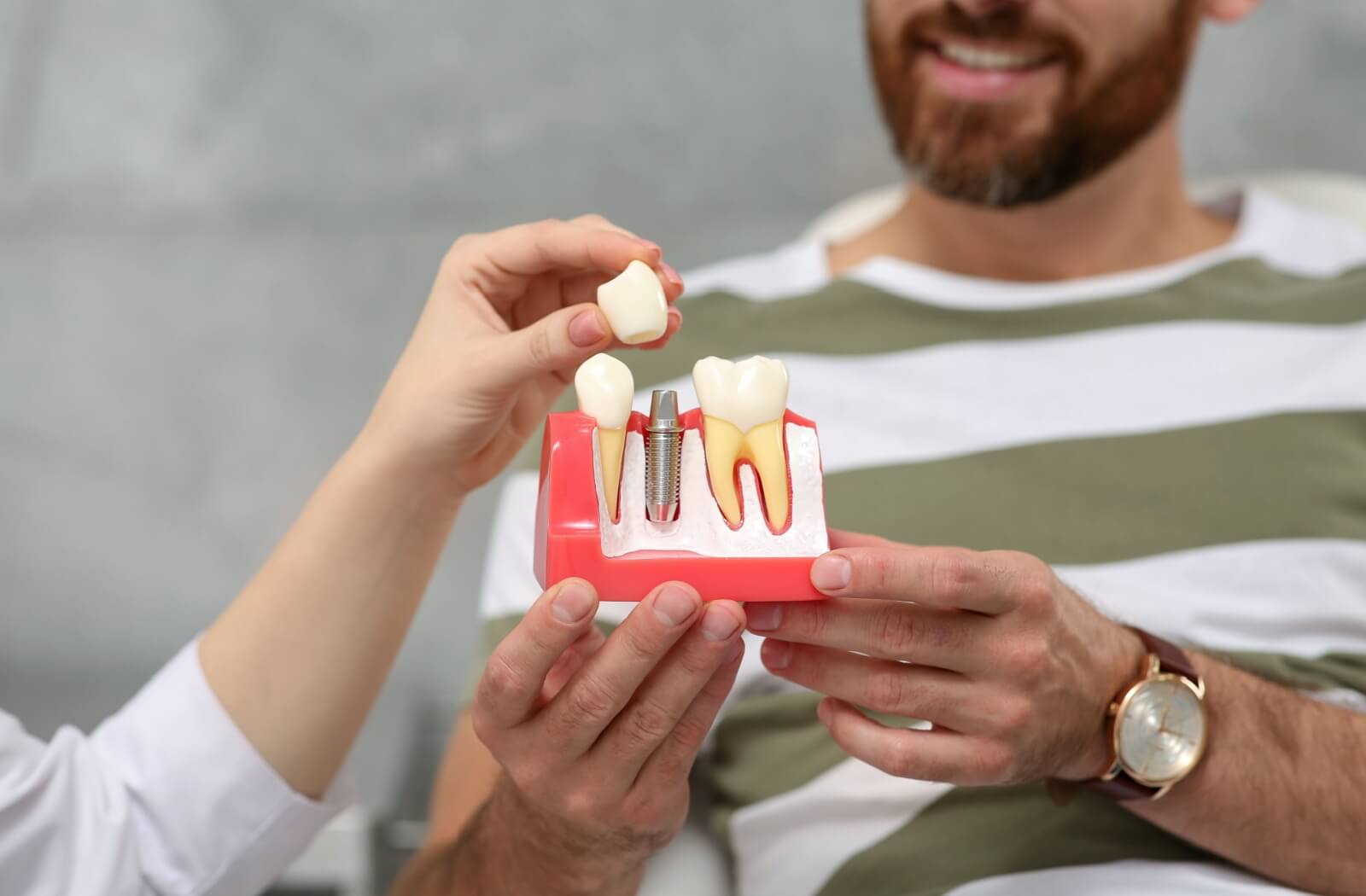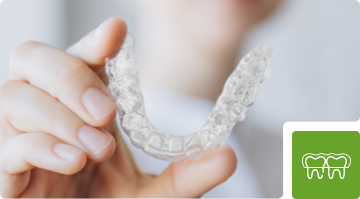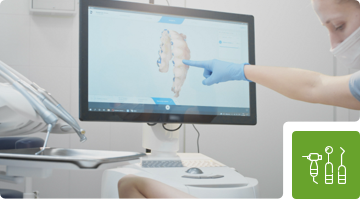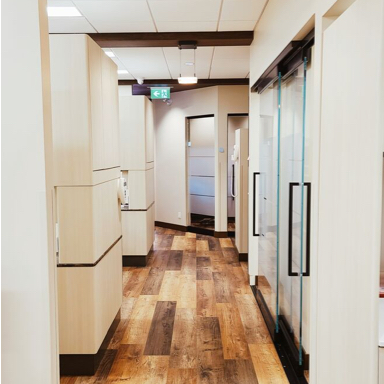Are you considering dental implants to restore your smile and improve your bite? Dental implant surgery is a popular solution for those with missing teeth, as it offers both functional and aesthetic benefits.
Getting a dental implant is a significant procedure that requires both time and patience, but the results can be convincing. Dental implant surgery can be short or relatively time consuming, depending on your dental status and other factors.
At Chinook Village Dental, we’re ready to help you through all the steps, so let’s have a look at what dental implants involve.
What is a Dental Implant?
Dental implants are artificial tooth roots, usually made of titanium, that are surgically inserted into the jawbone. They provide a sturdy base for attaching replacement teeth like bridges or crowns. By filling gaps left by missing teeth, implants help maintain your jawbone’s health and stop other teeth from moving out of place.
Your Surgical Evaluation
Before any surgery occurs, a thorough evaluation is crucial. This involves dental exams, X-rays, and a discussion about your overall health. Your dentist will work with you to create a personalized treatment plan, addressing the number of implants you need and the type of implant best suited for you.
This planning phase will set the groundwork for a successful procedure.
The Steps of Dental Implant Surgery
Placing the implant
The initial step in implant surgery involves placing the implant into your jawbone. This procedure usually takes 1-2 hours, depending on how many implants you need. Afterward, the implant undergoes osseointegration, a process by which it fuses with the bone over several months.
Abutment
Once osseointegration is complete, the next step involves attaching an abutment to the implant. This small connector post sticks out from the gums and acts as the anchor for your artificial tooth. This minor procedure generally takes 30 minutes to an hour.
The New Tooth
Finally, your dentist will secure a custom-made artificial tooth to the abutment. This final step creates a natural-looking replacement that blends seamlessly with your existing teeth.
The process of fitting and adjusting new teeth can take a couple of visits.
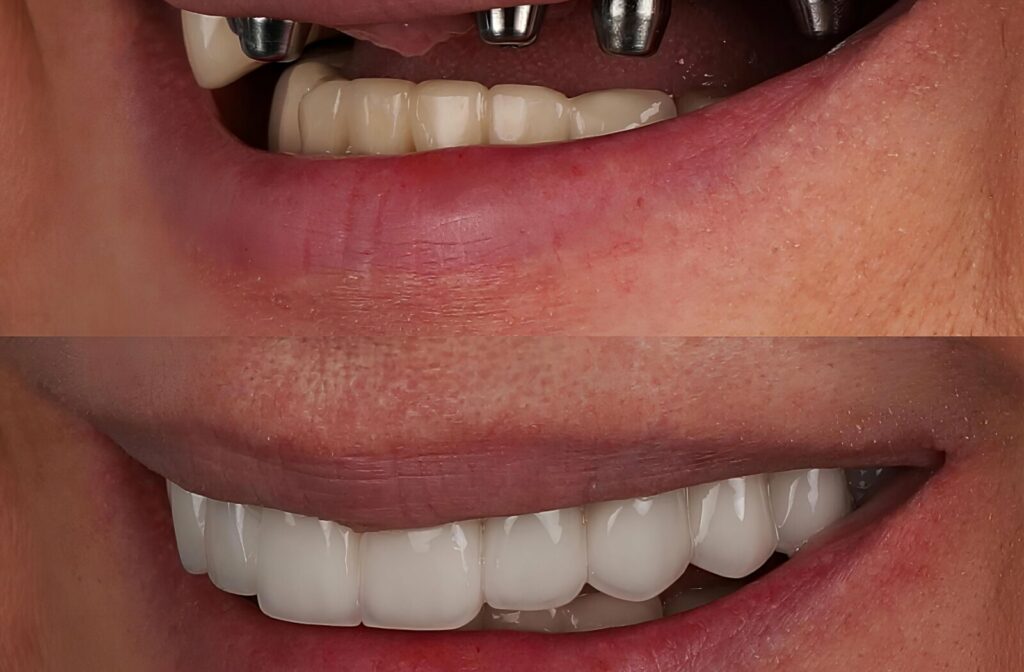
How Long Will I Be in the Office?
The duration of your dental implant appointment can vary depending on several factors, including:
- The complexity of the procedure
- The number of implants being placed
- Your specific oral health needs
On average, the surgical placement of a single dental implant typically takes about one to two hours. This includes time for anesthesia, preparation, and post-operative instructions. If additional procedures like bone grafting are necessary, overall time in the office may be extended. Despite this potentially lengthy visit, the advantages of a dental implant for your oral health are worth the time.
Why Might my Procedure be Longer?
Bone Density & Health
The success of dental implants heavily depends on the quality of your jawbone. If your bone lacks the necessary density, you may require bone grafting, which can extend the overall timeframe of the procedure.
Number of Implants
If you need multiple implants, anticipate a longer surgical session. Placing each implant accurately takes time, especially in complex cases like full-mouth reconstructions.
Surgical Technique
Different surgical techniques can vary the duration of your procedure. Standard methods might take longer than modern approaches like guided implant surgery.
Understanding the Healing Period
Healing is one of the most critical parts of the process, requiring several weeks to months for the implants to integrate successfully with the jawbone. This period is crucial to ensure the long-term stability of your implants. Take care to:
- Follow your dentist’s specific aftercare instructions to minimize discomfort, promote healing, and prevent complications.
- Manage swelling and discomfort with prescribed medications and thermal compresses.
- Maintain optimal oral hygiene by gently brushing and flossing around the implant site.
- Avoid vigorous rinsing or harsh products that could irritate the area.
- Attend regular follow-up visits with your dentist to monitor progress and healing.
- Have your dentist check for signs of infection and assess implant integration with the jawbone.
- Start with a soft food diet, gradually reintroducing harder foods as advised.
- Avoid smoking and excessive alcohol consumption to aid the healing process.
- Diligently follow these guidelines to ensure the long-term success of your dental implants.
Navigating Your Dental Implant Journey
While dental implant surgery is never a quick fix, the benefits are well worth the wait. Improved oral health, enhanced bite functionality, and a restored smile are just a few of the advantages.
At Chinook Village Dental, our team is here to support you every step of the way. We offer personalized approaches to dental care, ensuring you have all the information and guidance needed for a successful implant experience. Book your appointment today and take the first step towards a healthier, more confident smile.

